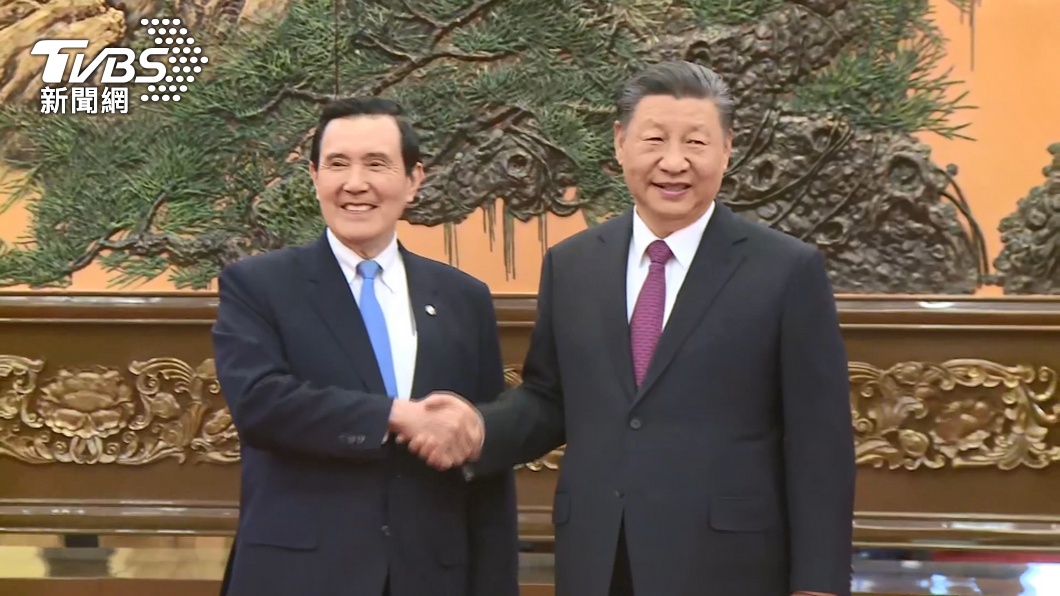"The '1992 Consensus' and opposition to Taiwan independence" were central to the discussions at the latest meeting between People's Republic of China (PRC) President Xi Jinping and former Republic of China (ROC) President Ma Ying-jeou (May 2008 - May 2016). Unlike their first encounter in 2015, this meeting showed no trappings of official-to-official engagement and did not evoke the "one country, two governments" model, reflecting Ma's current status outside of government.
Presented by Ma, the "1992 Consensus" and stance against Taiwan's independence are seen not as a definitive gauge of public support for the Kuomintang (KMT) but as indicative of some public sentiment for peace and stability in the Taiwan Strait. The meeting underscored the strategy of ambiguity in negotiation and reinforced the idea that substantive political reconciliation across the Taiwan Strait might occur outside official dialogues.
Central to the complexity of these discussions is the ambiguous nature of the "1992 Consensus." This term serves as a politically useful platform allowing both sides to engage without violating their respective legal frameworks, even as they hold divergent views on what "One China" means — whether it encompasses separate interpretations that can refer either to the ROC or the PRC.
During Ma’s administration, this consensus underpinned significant cross-Strait exchanges in economic, trade, cultural, and social arenas, leading to more than 20 cooperation agreements, such as the Economic Cooperation Framework Agreement (ECFA). Kim Moy, the then-director of the American Institute in Taiwan, even recognized the "1992 Consensus" as a foundation for dialogue. Ironically, the administration of President Tsai Ing-wen (ROC), who has rejected the ambiguity over "One China" and recognizes that "One China" refers to the PRC, has expressed its hope publicly to keep these agreements.
The insistence on a nuanced approach to "One China" has allowed the KMT to maintain a common but differentiated stance from Beijing, arguing for the benefits of strategic ambiguity that fosters dialogue without necessitating absolute agreement on core issues. This approach is credited with a period of relative peace and prosperity in cross-Strait relations under Ma’s leadership.
The broader goal of these dialogues extends beyond maintaining tranquility across the Taiwan Strait; it aims at fostering a meaningful reconciliation process. Such reconciliation, helpful for resolving political disputes, fosters peaceful, harmonious, and amicable interactions that mitigate the risk of conflict escalation. Further, both sides can use truth-telling and navigate a shared history marked by separation since 1949. This is particularly pertinent as formal interactions wane — i.e., this does not have to be limited to official-to-official channels.
Critics of this reconciliation approach argue for stronger deterrence to counter the Chinese Communist Party's (CCP) threats of forceful unification. Others express concern that the Ma-Xi meetings might merely be an element of the CCP's broader "united front" strategy, designed to co-opt Taiwan under its influence without resorting to military means.
However, reconciliation/negotiations and the build-up of deterrence capabilities should go together for Taipei. The influence of CCP's "united front" maneuvers can be minimized so long as Taiwanese sectors uphold the 113-year-old ROC sovereignty and prioritize the rights and well-being of the people, alongside fostering cross-strait interactions, the groundwork for internal unity can still be advanced.
As foreign dignitaries keep visiting Beijing, leaders in Taipei should be confident in their own political institutions and ways of living and view the resumption of mutual visits at various levels as a feasible attempt to reduce tension across the Taiwan Strait.
Kwei-Bo Huang (Ph.D., University of Maryland, College Park) is a professor of diplomacy at National Chengchi University in Taiwan, Republic of China. A former senior-ranked official in the ROC Ministry of Foreign Affairs and expert in international relations and external affairs in cross-Strait relations, his work often explores the dynamics of conflict management in ROC-PRC-U.S. triangular relations.
You can read the Chinese-language version of "The second 'Ma-Xi meeting' points to a path to reconciliation" (馬習二會 為和解指路, The United Daily, April 11, 2024) here: https://udn.com/news/story/7339/7890869











